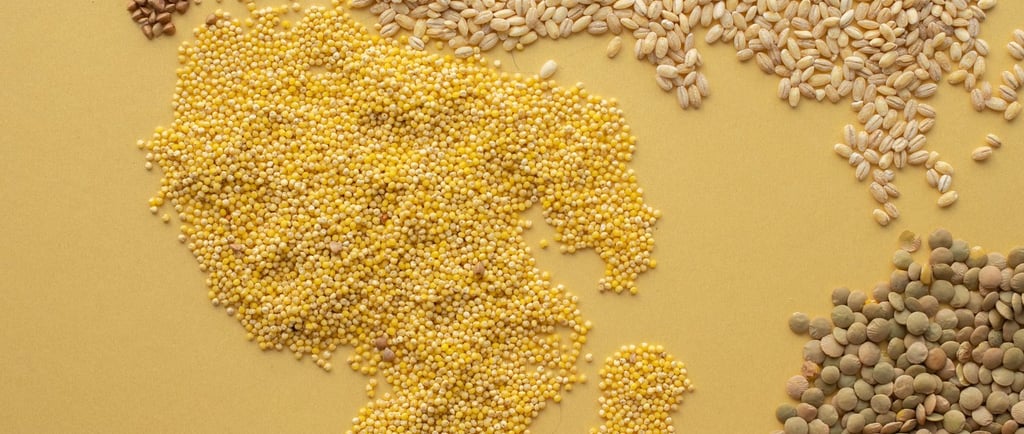The Digestive Dilemma: Why Grains Can Be Challenging to Digest
Heena Masani
8/17/2023


The Digestive Dilemma: Why Grains Can Be Challenging to Digest
Since ancient times, grains have been a mainstay of Indian cuisine, serving as a consistent supply of energy and vital minerals. However, eating grains might cause discomfort and problems with the digestive system for certain people. This raises the question of why grains are often considered as some of the hardest foods to digest. We'll explore both the distinctive qualities of grains and the elements that can make them difficult for some people in this post as we explore the complexities of grain digestion.
Complex Carbohydrates and Fiber Content
The presence of carbohydrates in grains is one of the main causes of their potential for difficulty in digestion. Complex carbohydrates, which are made up of lengthy chains of sugar molecules, are abundant in grains. The digestive system may take longer to break down these complex carbohydrates into simpler sugars that the body can absorb and utilise for energy. This requires the action of several enzymes.
Furthermore, grains are a rich source of nutritional fibre, which our bodies cannot digest. Fibre is essential for improving digestive health and regulating bowel motions. Fiber plays a crucial role in promoting digestive health and regulating bowel movements, but its presence in grains can contribute to feelings of bloating, gas, and discomfort, especially in individuals who aren't accustomed to consuming high-fiber diets.
Anti-Nutrients and Phytates
Grains also contain compounds known as anti-nutrients, which are substances that can interfere with the absorption of certain nutrients in the digestive tract. Phytates, in particular, are anti-nutrients found in grains that bind to minerals like calcium, iron, and zinc, forming complexes that are difficult for our bodies to absorb. This can potentially lead to mineral deficiencies over time, affecting overall health.
The Role of Gluten
Gluten, a protein found in wheat and related grains, has gained significant attention due to its role in celiac disease and non-celiac gluten sensitivity. For individuals with celiac disease, consuming gluten triggers an autoimmune response that damages the small intestine lining, leading to malabsorption of nutrients. Even for individuals without celiac disease, gluten can still be problematic for some, causing symptoms like bloating, fatigue, and digestive discomfort.
Lectins and Gut Irritation
Another class of substances present in wheat called lectins may also cause digestive problems. Although lectins provide a protective role for plants, humans may have trouble digesting them. Lectins have the capacity to irritate and inflame the lining of the digestive tract by binding to it. This irritation can disrupt the delicate balance of the gut microbiome, which plays a crucial role in overall digestive health and immune function.
Individual Variability
It's important to note that the ability to digest grains varies widely among individuals. Some people have adapted to diets rich in grains over generations and have developed the necessary enzymes to break down complex carbohydrates more efficiently. On the other hand, some individuals may lack these enzymes, making grain digestion more challenging for them.
Conclusion
If you discover that grains routinely give you digestive problems, speaking with a healthcare provider or dietitian can help you figure out the best nutritional options to meet your specific needs. You can finally steer yourself towards a diet that supports healthy digestion and general wellbeing by balancing your diet with a variety of nutrient-rich foods and paying attention to your body's reactions.


